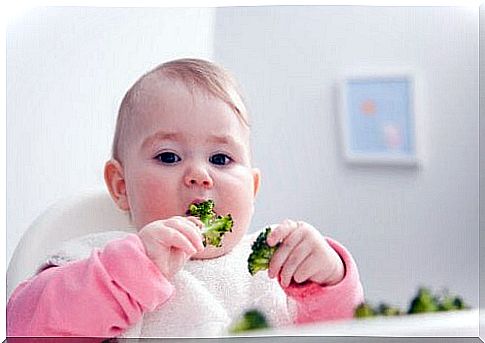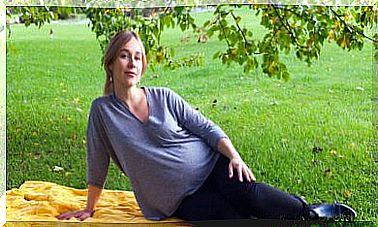6 Recommendations To Balance Your Baby’s Weight

Although having a baby that fills your hands when you hug him is adorable, you have to be careful with the weight that children reach at this stage of their life. At first it is not something worrisome, but if the condition persists, it can even generate health difficulties.
For this reason, below we offer you some recommendations to balance your baby’s weight.
The other extreme, that of children who are under the expected weight according to their physical constitution, is not healthy either. But how do you keep your baby within a suitable weight range? Take note of the following tips.
Recommendations to balance your baby’s weight
1.- Breastfeeding
Some mothers do not have the possibility to carry out this process or only do it for a short time. Whenever possible, breastfeeding is the best way to start feeding your baby.
Breast milk is the only food that in the first instance satisfies the nutritional requirements of the child. In addition, during the breastfeeding process it is almost impossible for the baby to be given more food than it needs.
Even if it remains attached to the chest for a long time, it will only eat food for the first 10-15 minutes.
2.- Crying is not equivalent to hunger
Babies cry for many reasons. Sometimes it is because of hunger, other times it is because they are tired, scared, overstimulated, uncomfortable or because they want you to pick them up.
If it’s been a short time since you last fed him, try other solutions before offering to eat.
If whenever the baby cries you respond with food, he will understand that eating meets any of his needs. This will create emotional associations with food that are unhealthy and difficult to undo.

3.- Excess food is not good
It is natural that you want the baby to finish the plate or bottle that you have prepared for him, but if he stops eating you must listen to his signals. To stop feeding him when you understand that he is satisfied is to teach him to obey the healthy limits of his organism.
If the baby still does not speak, it will give you signs of satiety that you have to learn to read. A gesture, a movement or a sound will make you understand that it is no longer necessary to give him more food.
This should be rethought when the baby is underweight and needs a different diet. In this case, you will require the advice of a professional to give you appropriate techniques and strategies.
4.- Healthy solid foods
Once the breastfeeding process is ready and after 6 months of life, you should begin to present healthy food options.
The most prominent foods in terms of recommendations to balance your baby’s weight are fruits, vegetables, fish and lean meats.
A baby will not be afraid to try something you offer, so you have to take advantage of this condition before it becomes selective.
Offer him the chance to try as many foods as possible. A diverse and nutrient-rich diet will ensure good physical and cognitive development and is the starting point for creating good habits.
5.- Family meals from an early age
From the moment the baby can sit up, it is time to bring him to the table to eat with the family. Children who eat with their parents and siblings are less likely to become overweight in the future.
In addition, family dinners help strengthen emotional relationships.

6.- Frequent physical activity
One of the best recommendations for balancing your baby’s weight is to be physically active from an early age.
There are exercises that can be done with babies from birth that help them strengthen their muscles. It is important that adequate nutrition is complemented with a routine that includes movement.
When we are adults, we put into practice the habits we learned in childhood. What do you want your child’s feeding plans to be like in the future?










